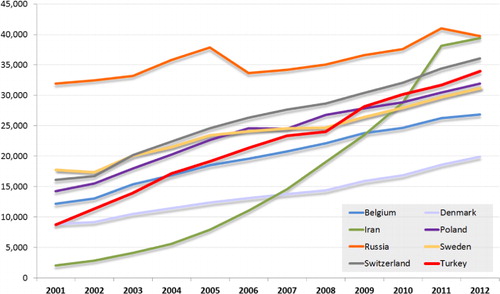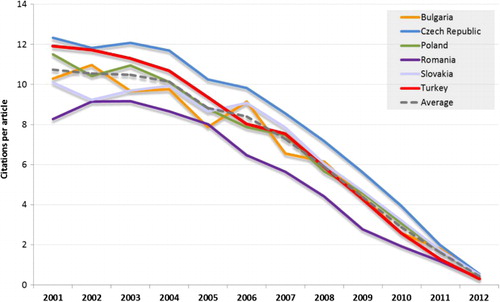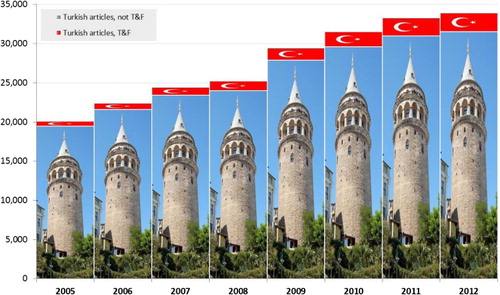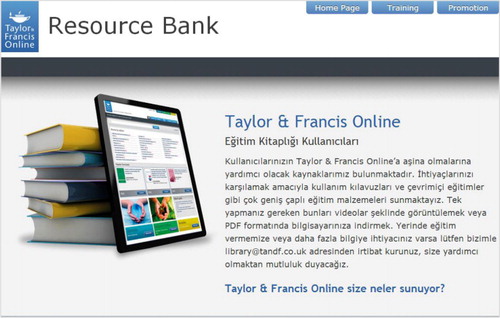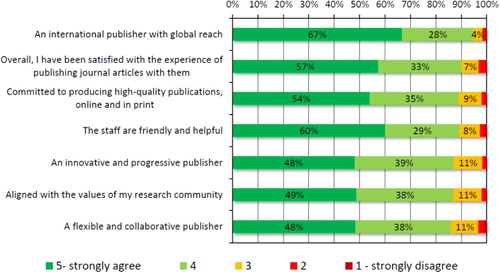Turkey, a rising research powerhouse.
Turkey is now established as a top 20 research producer, publishing more than 30,000 scientific articles in 2012. This output ranks Turkey 19th in the world, one place behind Switzerland. It is informative to look at the countries that Turkey stands alongside today (see ). Since 2001, Turkish research output has successively overtaken that of Denmark, Belgium, Sweden and Poland.
And Turkey's trajectory is firmly upwards, with research articles published growing 13% per annum between 2005 and 2012.Footnote1 A 2011 report from Thomson Reuters notes: “Turkey's share of world output nearly trebled from 0.7% in 2000 to 1.9% in 2009”.[Citation1] Amongst G20 nations, only China saw faster growth in research output between 1996 and 2008.[Citation2]
The driver of this stellar growth has been substantial government investment. A recent Royal Society report comments:
the Turkish Government increased its spending on R&D nearly six-fold between 1995 and 2007, and now spends more annually in cash terms than Denmark, Finland or Norway. Over this period, the proportion of Turkey's GDP spent on R&D rose from 0.28% to 0.72%, and the number of researchers increased by 43%.[Citation3]
As investment has flowed, so quality has improved. Citations-per-articles to research from Turkey outperformed those from Poland, Bulgaria, Slovakia and Romania between 2001 and 2012 (see ).Footnote2 Turkish research is on the rise.
Taylor & Francis is becoming a major publisher of Turkish research
Whilst output from Turkish researchers has grown fast, Turkish articles published by Taylor & Francis have grown even faster. Between 2005 and 2012, research from Turkish authors published in Taylor & Francis journals increased by a staggering 20% per annum (see ). More than 7% of all Turkish research articles in 2012 were published by Taylor & Francis, and the proportion is rising.
Some of this research is published in journals specialising on Turkey and its neighbouring region, such as Turkish Studies, Anatolia, Journal of Balkan and Near Eastern Studies and Middle Eastern Studies. Far more appears in quality disciplinary titles like Energy Sources, Part A Recovery, Utilization, and Environmental Effects, Journal of Coordination Chemistry, Journal of Plant Nutrition, Separation Science and Technology, International Journal of Production Research and Radiation Effects and Defects in Solids.
Unsurprisingly, Taylor & Francis usage from Turkish libraries is also surging upwards, growing even faster than articles published in 2012. Turkey is now one of Taylor & Francis' top 10 countries for journal readership.
Rolling out sales deals and helping Turkish librarians operationalise them
In 2008, TUBITAK EKUAL (National Academic Site License for Electronic Resources), on behalf of the Turkish government, signed a national license with Taylor & Francis opening access to peer-reviewed scholarly articles to aid Turkey's growing research output. The license opened access to over 180 members of TUBITAK EKUAL, a government body comprising of public and private universities and other four year or above degree-granting educational institutions.
Over the last four years Taylor & Francis' sales team have visited six cities across Turkey delivering educational seminars and training materials designed to assist researchers in fully utilising available content. In partnership with TUBITAK ULAKBIM and EBSCO, in 2012 our sales team visited Erciyes University in Kayseri, Karadeniz Teknik University in Trabzon and finally Marmara University in Istanbul.
Our training seminars are aimed at university directors, faculty staff, librarians, researchers and students. The seminars covered: current trends in research output in Turkey, how researchers can publish with Taylor & Francis and how researchers can maximise their utilisation of Taylor & Francis online journal resources via TUBITAK EKUAL.
For the seminars we created specific platform user guides and presentations customised to the needs of the participants and hosting universities, all user guides and presentations were translated and presented in Turkish, followed by Q&A sessions with Taylor & Francis’ Sales Managers Julia Skouta and Paul Stoiber. In addition to this, all attendees were given a USB memory stick containing Turkish language training resources covered at the seminars.
The seminars also help us gather feedback directly from end-users on how we can improve our content, our platform, and our services to ensure that we continue to meet customers’ needs and expectations. In an effort to meet these expectations, we have translated all of our Taylor & Francis online platform user guides and interactive video guides into Turkish (see http://resources.tandfonline.com/training-tr.php and ).
As requested by TUBITAK EKUAL's specialists (responsible for Licence Agreements and for Publisher Databases), Taylor & Francis has modified the technical specifications of our Taylor & Francis Online platform in partnership with Atypon Systems to ensure that the consortium administrator accounts are in alphabetical order; thus, making it easier for account administrators to manage their online subscriptions and usage statistics reporting. This significantly increases efficiency when gathering usage data.
As part of our ongoing commitment to support and train our local partners, in 2011 two TUBITAK EKUAL staff members visited our office in Oxford. They were able to learn about the entire publishing industry by meeting with our editors, marketing staff, and the Research and Business Intelligence team.
In May 2012, we participated in the TUBITAK EKUAL Annual Meeting in Antalya attended by the president of “The Higher Education Council, Prof. Gokhan Cetinsaya” and president of TUBITAK, Prof. Yucel Altunbasak, as well as directors, faculty and library staff from over 180 institutions across Turkey. Taylor & Francis was pleased to have participated in this event and was honoured to have received an award from Associate Prof. Ramazan Acun, Deputy Manager of TUBITAK ULAKBIM, for our contribution to the academic community. At this event, we met with attendees to discuss how we can continue our support for them; presented updated information on Turkish research output and authors; and reintroduced Taylor & Francis’ content currently available to all TUBITAK EKUAL members and announced a free trial to our Online archive titles.
Taylor & Francis Turkish researchers survey 2012
To ensure that we understand the needs of Turkish researchers as well as librarians, Taylor & Francis surveyed 2,792 researchers in Turkey during 2012. Of those invited, 610 completed our survey, a 21.8% response rate. Invitations were sent by email and the survey completed online. Respondents were from all levels of seniority and spread representatively across subject areas. Sixty-seven per cent were male and 33% female.
What did we learn? First and most striking was that Turkish researchers have the same motivations as their peers elsewhere. They place great value on journal reputation, international readership, rapid publication, high Impact Factor and a supportive Editorial office and Production team. Peer review is still greatly valued, with 84% of respondents saying that they want peer review which is both rigorous and which provides constructive comments for how an article could be improved. Rapid publication is becoming a significant issue. Forty-three per cent of respondents want online publication in 30 days or fewer and the vast majority (80%) within 60 days.
Changes are in progress. More than a third of respondents (38%) now read journal articles on a tablet device like an iPad “sometimes”, “often” or “always”. This is twice the number who read articles on smart phones, suggesting that tablets are becoming the default platform for mobile reading by Turkish researchers.
Demand is also growing for more supplementary data to be integrated into journal articles. Forty-four per cent of respondents want to publish relevant data-sets alongside journal articles and 40% would like to be able to link to data-sets hosted on third party repositories like GenBank and PANGAEA. There is also significant interest in adding high-resolution images, supporting text files, structured graphics, maps and videos to online articles.
Respondents are eager for more data about their articles. Seventy-five per cent want citation figures to appear with their article and only slightly fewer (73%) wish to see submit-to-accept and accept-to-publication times. Intriguingly, 71% of respondents would be happy for readers to post-constructive comments on their articles and even more (79%) would like readers to be able to contact them directly about their article.
Opinions on Open Access are surprisingly cautious. Only 7% of respondents “often” or “always” have funding to pay Open Access charges, and the majority has never paid a fee to publish an article Open Access (69%). When asked whether they intend to publish more often in Open Access journals in future, a mere 18% said they did. Most respondents (51%) still prefer to publish in journals which make no publication charges. A further 36% always choose the best journal for their article, regardless of whether it has publication charges or not. Fewer than one in seven respondents (13%) prefer to publish in journals which are free to access on publication.
The target audience for Turkish research is clear. After Turkey (where 94% of respondents want their article to be read), comes Europe (92%), North America (82%) and the Middle East (69%).
And happily for us, Turkish researchers rate Taylor & Francis very highly. Ninety per cent of respondents have been satisfied with the experience of publishing their journal article with Taylor & Francis, and almost the same number said our staff were friendly and helpful (89%). See for more information. Compared to other major publishers, Taylor & Francis is rated best aligned with the values of the research community, most flexible and collaborative, and most committed to producing high-quality online and printed publications. Thank you all so much for the feedback!
For reading clarity, answers from respondents who stated that they had no opinion on the above questions have been removed.
Additional information
Notes on contributors
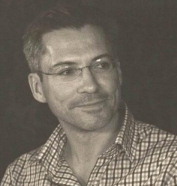
Rod Cookson
Rod Cookson is Editorial Director for the Earth, Environment and Biological Science journals at Taylor & Francis. He was previously Publisher for our Geography Journal programme. Rod joined Taylor & Francis eight years ago, after working for four years at Blackwell Publishing. Prior to that, Rod set up and ran a book packaging and publishing company for two years, worked in educational book publishing for three years, and was a bookseller for three years.
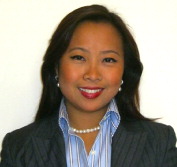
Angelie Torne
Angelie Torne joined Taylor and Francis in September 2009, managing Online Journals Business Development and Sales across Southern Europe. She was promoted in January 2011 to manage all of Europe and in March 2011 was appointed to manage Europe Middle East and Africa. Angelie is now the Head of Sales for eBooks, and is responsible for the strategic development, implementation and execution of business development strategies for the eBooks sales team in UK, Europe, Middle East, Africa and the Rest of the World territories.
Notes
1. Data from SCImago Journal & Country Rank, extracted 23 September 2013.
2. Data from SCImago Journal & Country Rank, extracted 28 November 2013.
References
- Adams J, King C, Pendlebury D, Hook D, Wilsdon J. Global research report Middle East: exploring the changing landscape of Arabian, Persian and Turkish research. 2011.
- The Royal Society. Knowledge, networks and nations: global scientific collaboration in the 21st century. 2011.
- The Royal Society. Knowledge, networks and nations: global scientific collaboration in the 21st century. p. 21. 2011.
